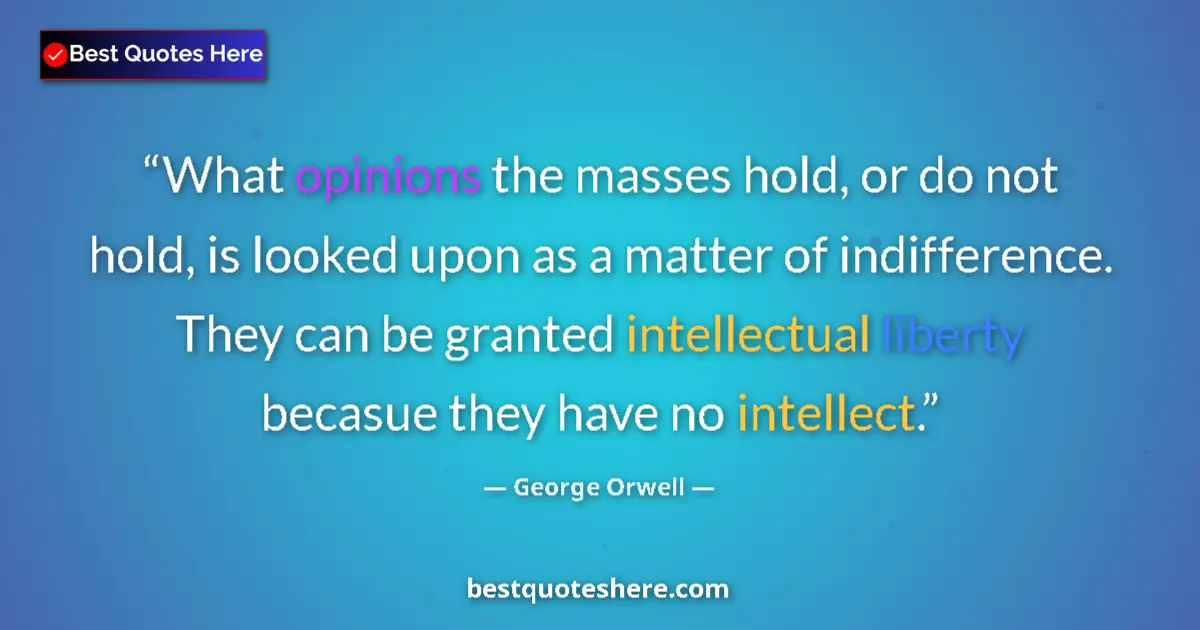"What opinions the masses hold, or do..." - Quote by George Orwell
What opinions the masses hold, or do not hold, is looked upon as a matter of indifference. They can be granted intellectual liberty becasue they have no intellect.

More by George Orwell
“A tragic situation exists precisely when virtue does not triumph but when it is still felt that man is nobler than the forces which destroy him.”
“You are a slow learner, Winston." "How can I help it? How can I help but see what is in front of my eyes? Two and two are four." "Sometimes, Winston. Sometimes they are five. Sometimes they are three. Sometimes they are all of them at once. You must try harder. It is not easy to become sane.”
“I often wondered whether any of the others grasped that I had done it solely to avoid looking a fool.”
More on Class
“Now in regard to trades and other means of livelihood, which ones are to be considered becoming to a gentleman and which ones are vulgar, we have been taught, in general, as follows. First, those means of livelihood are rejected as undesirable which incur people's ill-will, as those of tax-gatherers and usurers. Unbecoming to a gentleman, too, and vulgar are the means of livelihood of all hired workmen whom we pay for mere manual labour, not for artistic skill; for in their case the very wage they receive is a pledge of their slavery.”
“Those who live in the best cliffs think they are better than us. That is always man's attitude when he has power.”
“[There are dangers in] the disposition to hunt down rich men as if they were noxious beasts.”
More on Intellect
“Pretend what we may, the whole man within us is at work when we form our philosophical opinions. Intellect, will, taste, and passion co-operate just as they do in practical affairs; and lucky it is if the passion be not something as petty as a love of personal conquest over the philosopher across the way.”
“Every deep thinker is more afraid of being understood than of being misunderstood.”
“I wish I could make him understand that a loving good heart is riches enough, and that without it intellect is poverty.”